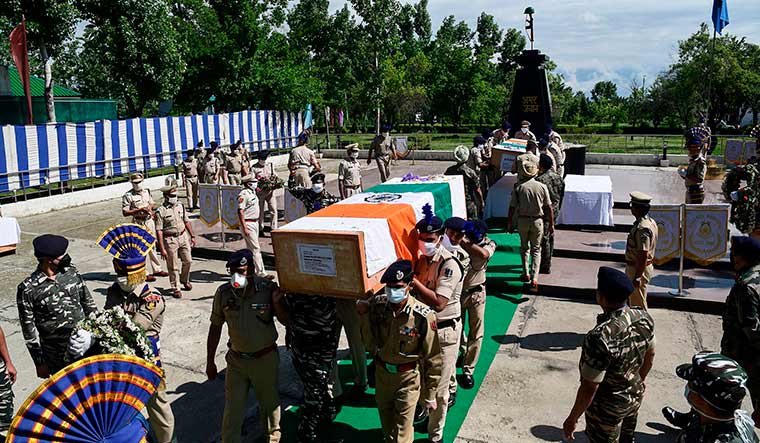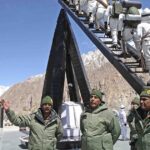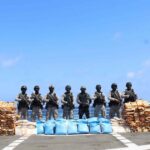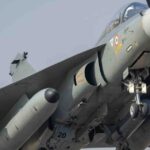
SOURCE: THE WEEK
THESE DAYS, PAKISTAN Army Chief General Qamar Javed Bajwa is busy shuttling between the military offices in Karachi, the country’s financial capital, and the army headquarters in Rawalpindi. The Covid-19 pandemic has not only hit Pakistan’s economy but also turned international attention away from its favourite subject—Kashmir. Its army, therefore, has taken centre stage to meet the two challenges.
Even before the pandemic, Pakistan’s economy had been witnessing a slump. There was pressure from the Financial Action Task Force (FATF), the global terror financing watchdog, which put Pakistan on the grey list and threatened sanctions. At the same time, terror outfits were growing desperate after India abrogated Article 370 in Jammu and Kashmir on August 5, 2019.
Last October, Bajwa met business leaders and government finance officials in Karachi to discuss ways to tackle the economic slowdown. The growing role of the military in the country’s economic management became clear when the military issued a statement after the meeting.
National security was intimately linked to economy, said Bajwa, and to prosper, there should be a balance in security needs and economic growth.
In Rawalpindi, Pakistan’s Inter-Services Intelligence met top terror commanders like Jaish-e-Mohammed’s operational commander Mufti Abdul Rauf Asghar, brother of JeM founder Maulana Masood Azhar, in December. The commanders were told that the government will ease restrictions on terror outfits.
Months later, when the world was busy fighting Covid-19, Pakistan quietly removed around 1,800 terrorists from its watch-list. As the pandemic threatens to disrupt Pakistan’s economic revival plans, Bajwa and his men are desperate to succeed in their military plans to safeguard the military budget. Recently, Pakistan’s military spokesman tweeted that the “voluntary cut” in the military budget would not be at the expense of security. For a country that has long been using terrorism as an instrument of state policy, it did not take too long to put those plans into action.
Intelligence reports revealed that a dozen launching pads were kept active in Pakistan-occupied Kashmir during winter to facilitate early entry of terrorists into the Valley. The pads, reportedly, are: Halmatm, Nekrum, Taobat, Suti, Ziarat, Sonar, Dakki, Sharda, Rata Pani, Dudhnial, Kasim-2 and Leepa Chham. The ceasefire violations since last August were reportedly being used to infiltrate terrorists. Official records showed that there have been 17 ceasefire violations this year (one in January, seven in February, three in March and six in April).
Latest intelligence inputs, accessed by THE WEEK, revealed that the launch pads housed 450 terrorists, of which 380 were Pakistan nationals. It is also learnt that Bajwa visited the Line of Control on April 30 to take stock of the preparations and weapons.
Official sources say that most of the terrorists have already made their way into Kashmir. According to latest inputs, there are around 240 terrorists in Kashmir; 120 are Pakistan nationals, with 60 each from the Lashkar-e-Taiba and JeM. On May 2, two militants engaged security forces for 12 hours in Handwara in north Kashmir, resulting in the killing of four Army personnel and a police sub-inspector. Two days later, three CRPF personnel were killed in another encounter in the same area. While security forces avenged the Handwara horror by killing Hizbul Mujahideen commander Riyaz Naikoo, it might not ensure a lull in violence in the Valley.
“It is unlikely that Pakistan will give up using terrorism as an instrument of policy, and as long as that continues it will be difficult for India to maintain peace in the Valley,” said Husain Haqqani, Pakistan’s former ambassador to the US.
Security sources said that the ISI was sending terrorists from various tanzeems (outfits) as a single group to increase infiltration. A case in point was the encounter in Dangerpora in which two terrorists, one from Hizbul and the other from JeM, were killed. Also, keeping in line with the Rawalpindi plan to underplay the “state support” in terror attacks, new local outfits like The Resistance Front and Tehreek-e-Millat-e-Islami have been floated to mislead the FATF and the international community, said an intelligence official.
“The irony is that while Pakistan cannot attain its objective of internationalising the Kashmir issue without giving up terrorism, India also cannot settle things in Kashmir without winning over the people of the state that has been downgraded to a Union territory,” Haqqani told THE WEEK.
While the Modi government and security forces are trying to win the hearts of Kashmiris through political and humanitarian efforts, Indian Army Chief General M.M. Naravane said, “The onus remains with Pakistan to bring peace in the region. Unless Pakistan gives up its policy of state-sponsored terrorism, we will continue to respond appropriately and with precision.”
Intelligence reports revealed that the Pakistan army has deployed heavy artillery regiments close to the LoC and is not shying away from targeting civilians. Their use of mortars and artillery guns during ceasefire violations is keeping Indian security forces on their toes.
However, the Indian Army has chalked out a summer offensive. It has activated the anti-infiltration grid, which involves reoccupying posts along the LoC that were vacated in winter owing to the heavy snow. Local formation commanders have been tasked to take the lead in intelligence-based operations. While the terrain makes it impossible to physically monitor and prevent infiltration, intelligence-based interdiction and real-time coordination with the police are proving to be effective. While the resumption of internet and mobile services in Kashmir has provided security agencies with good intelligence inputs, it has also helped terrorists communicate with their handlers in Pakistan. Another challenge is the overground network that provides logistical support, safe houses, funds and weapons for attacks.
“The counterterrorism response by the Indian Army is not in isolation, but an aggregation of capabilities of all agencies involved directly or indirectly. Options short of war are available to us to provide a befitting response to our adversaries,” said an officer.
Moreover, National Security Adviser Ajit Doval is not just watching the developments in Karachi and Rawalpindi but also Islamabad. The recent appointment of Lt Gen (retd) Asim Saleem Bajwa as information adviser to Pakistan Prime Minister Imran Khan is being seen as a sign of the growing trust deficit between the military establishment and the civilian government. The military establishment is still licking its wounds from the diplomatic humiliation at the United Nations General Assembly last September, as Khan failed to garner any support against India’s decision to abrogate Article 370.
New Delhi is also keenly watching the growing unrest in PoK. Home ministry sources said that the people of PoK are appealing to the Indian government to intervene and safeguard their human rights.
“Under the guise of controlling the law and order situation, the Pakistani army has decided to send heavy contingents of troops to Gilgit-Baltistan,” said Dr Amjad Ayub Mirza, a human rights activist. Mirza, who hails from Mirpur in PoK and now lives in exile in the UK, expressed worry over the April 30 order of the Supreme Court of Pakistan, which allowed the federal government to set up a caretaker government in Gilgit-Baltistan and conduct provincial assembly elections.
“In anticipation that a general election will pave way for the formation of a pro-Pakistani military establishment, the doors to declare Gilgit-Baltistan the fifth province of the country through a parliamentary bill will be wide open,” Mirza told THE WEEK. He added that it was time for the Indian government to reclaim its territories from Pakistan. “It can only be done by bringing the Pakistani military to the negotiating table,” he said.
And, New Delhi is upping the ante. The Indian Meteorological Department recently included Gilgit-Baltistan and Muzaffarabad under PoK in its forecast list, a move that miffed Pakistan. “This is another mischievous Indian action in support of a spurious claim and further evidence of India’s irresponsible behaviour,” said Pakistan foreign ministry spokesperson Aisha Farooqui in a statement on May 8.
But as Taha Siddiqui, an award-winning Pakistani journalist living in exile in Paris since 2018, said, India needs to look beyond this summer as “the political and social climate in the region has changed since the abrogation of Article 370”. “Today, Pakistan is increasingly focusing on exploiting the local sentiments of the youth, especially those who feel alienated by Delhi’s recent steps,” he said. “Through social media and internet, Pakistan is brainwashing these youngsters, training them and providing funds and weapons.”
According to Siddiqui, be it summer or winter, Kashmir will continue to boil until India aligns the interest of the Kashmiri people with that of the nation. Till then, Bajwa and his military will continue to steer Pakistan’s defence and foreign policies to run its war economy.
https://defencenewsofindia.com/indications-are-that-pakistan-will-continue-to-sponsor-terrorism-in-kashmir/






